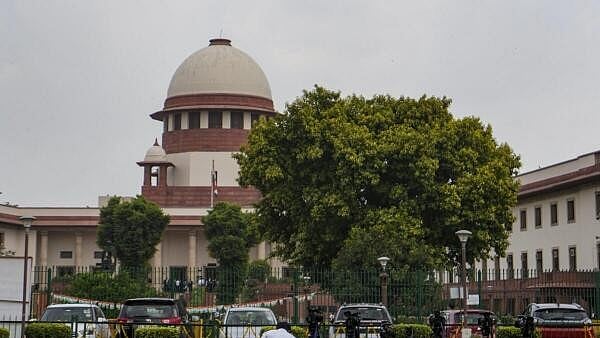
The Supreme Court in New Delhi
Credit: PTI Photo
New Delhi: The Supreme Court on Monday declared that land acquired for Tata Motors' 'Nano' car project in Singur will not be restored to the industrial entities which were operating there prior to the acquisition.
A bench of Justices Surya Kant and Joymalya Bagchi gave interpretation of the apex court's 2016 verdict in Kedar Nath Yadav's case that quashed the land acquisition proceedings for establishing the manufacturing plant of Tata Motors.
The bench said the 2016 judgement was anchored on the premise that the acquisition disproportionately affected vulnerable communities lacking financial resources and institutional access to challenge governmental action.
The bench pointed out that this court had directed restoration of land to the original landowners/cultivators by the state within a period of 12 weeks.
In a relief to the West Bengal government, the bench said, "Extraordinary judicial intervention is warranted when systemic barriers prevent certain classes from accessing ordinary remedies, not when parties possess adequate means to vindicate their rights. Relief conceived to prevent impoverishment among the disadvantaged cannot extend to commercial enterprises with financial capacity and institutional sophistication."
The West Bengal government challenged the Calcutta High Court order that had directed the state to restore 28 bighas of land, including all structures, to M/s Santi Ceramics Private Limited, which was operating a manufacturing facility in Singur for the production of ceramic electrical insulators prior to the 2006 land acquisition process for Tata's Nano project.
The bench, which set aside the high court order, said the remedy provided by this court addressed the structural vulnerability as the apex court in 2016 identified poor agricultural workers as the weakest sections of society.
"Subsistence farmers dependent entirely on inherited land face destitution when acquisition bypasses mandatory safeguards— they possess no alternative livelihood, lack resources to navigate administrative procedures or afford prolonged litigation. The remedy provided by this court addressed this structural vulnerability," it said.
The bench further said that Santi Ceramics, despite possessing financial resources and institutional access, never pursued the appellate remedies available under the law and accepted the entire compensation amount of around Rs 14 lakh without protest and remained passive while farmers pursued litigation for over a decade.
After having chosen not to contest the acquisition through available statutory mechanisms, respondent No. 1 now seeks the same relief that was granted to disadvantaged communities through PIL— a classic free-rider problem that judicial remedies cannot encourage, the bench said.
